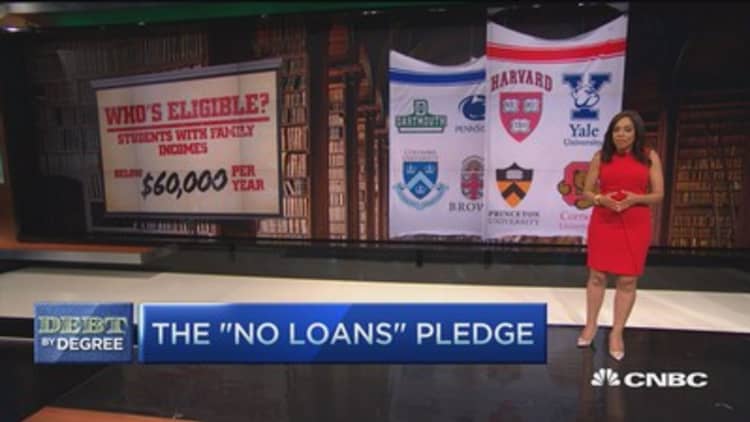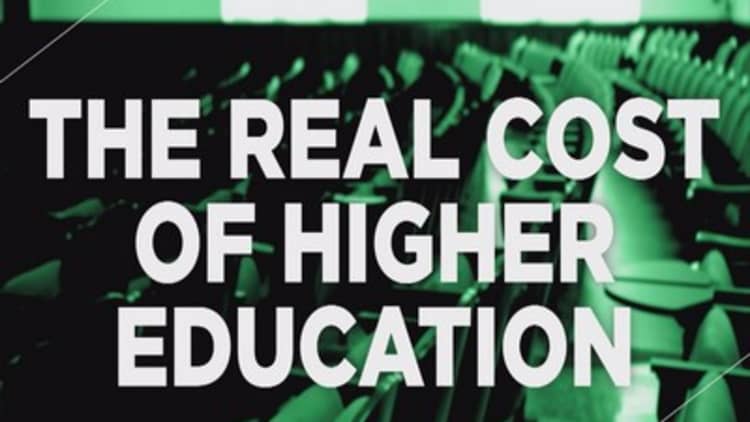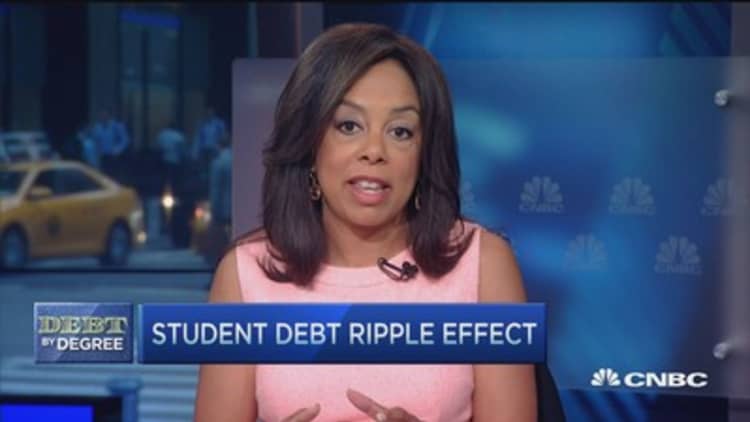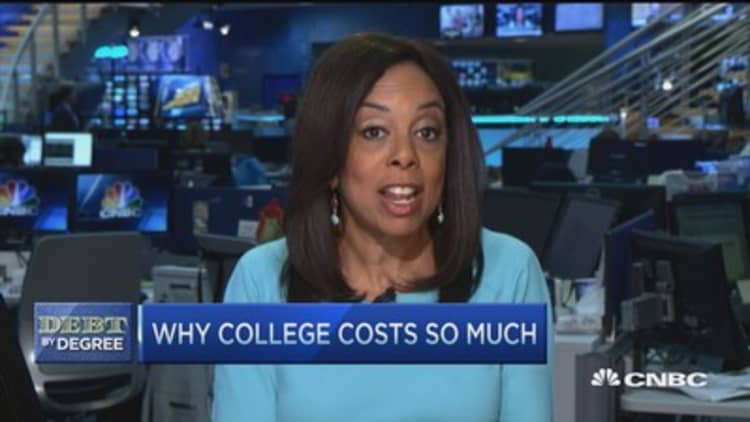



If you're looking for an affordable college education, you may find it at one of the nation's most expensive colleges and universities.
More than 70 colleges have replaced loans with grants for the best and brightest students—and those most in financial need.
Several of nation's most elite and selective colleges—including Harvard, Princeton and Stanford—have adopted "no-loan" financial aid policies. No-loan policies are generally limited to low-income students who qualify for the federal Pell Grant or whose family income falls below $40,000 to $60,000, according to Edvisors.com, a college planning website.
"If you get in, these schools are a great deal," said Edvisors.com publisher Mark Kantrowitz, since the goal of no-loan policies is to reduce the net price of college for qualified, low-income students.
Read MoreCan these fixes make college more affordable?
All of the Ivy League institutions have no-loan policies. Princeton started the "loan wars" in 1998, replacing loans with grants for low-income families. A year later, Brown followed with a variation on Princeton's pledge, Harvard in 2004, and Yale in 2005. Twenty colleges made no-loan pledges in 2007 and 37 in 2008, Kantrowitz said, setting off a migration of highly qualified, low-income students to these schools.
But attending a no-loan college doesn't necessarily mean a low-income student will receive a free education. They may still have to borrow for some share of college costs. And, research shows graduates who received federal Pell Grants, most of whom have family incomes under $40,000, are more likely to borrow and to borrow more than other students.
"No loans in financial aid packages, generally assumes the student and family will be covering some of the cost, so the aid package doesn't cover the full cost of attendance," said Lauren Asher, president of the Institute for College Access & Success. "If the student and family can't cover their expected contribution out of pocket, they may still need to borrow."
Still, by attending a college with a no-loan policy, a low-income student may borrow less.
Read MoreWhy does a college degree cost so much?
Here's the catch: Most no-loan colleges have a minimum student contribution or summer work expectation that require all needy students, even those living below the poverty line, to contribute several thousand dollars to their education. "The colleges argue that students can satisfy the requirement by working during the summer, but many of these students are already working during the summer, to put food on the table as the primary wage-earners of their families," Kantrowtiz said.
No-loan colleges may be step in the right direction for low-income students, who are increasingly being priced out of a higher education. Yet only about 1 percent of colleges and universities have adopted these policies. "It is at best a Band-Aid," Kantrowitz said.
Editor's note: The graphic in the "Ivy League 'no loans' policy" video should have depicted the logo of the University of Pennsylvania, not Penn State's logo.


